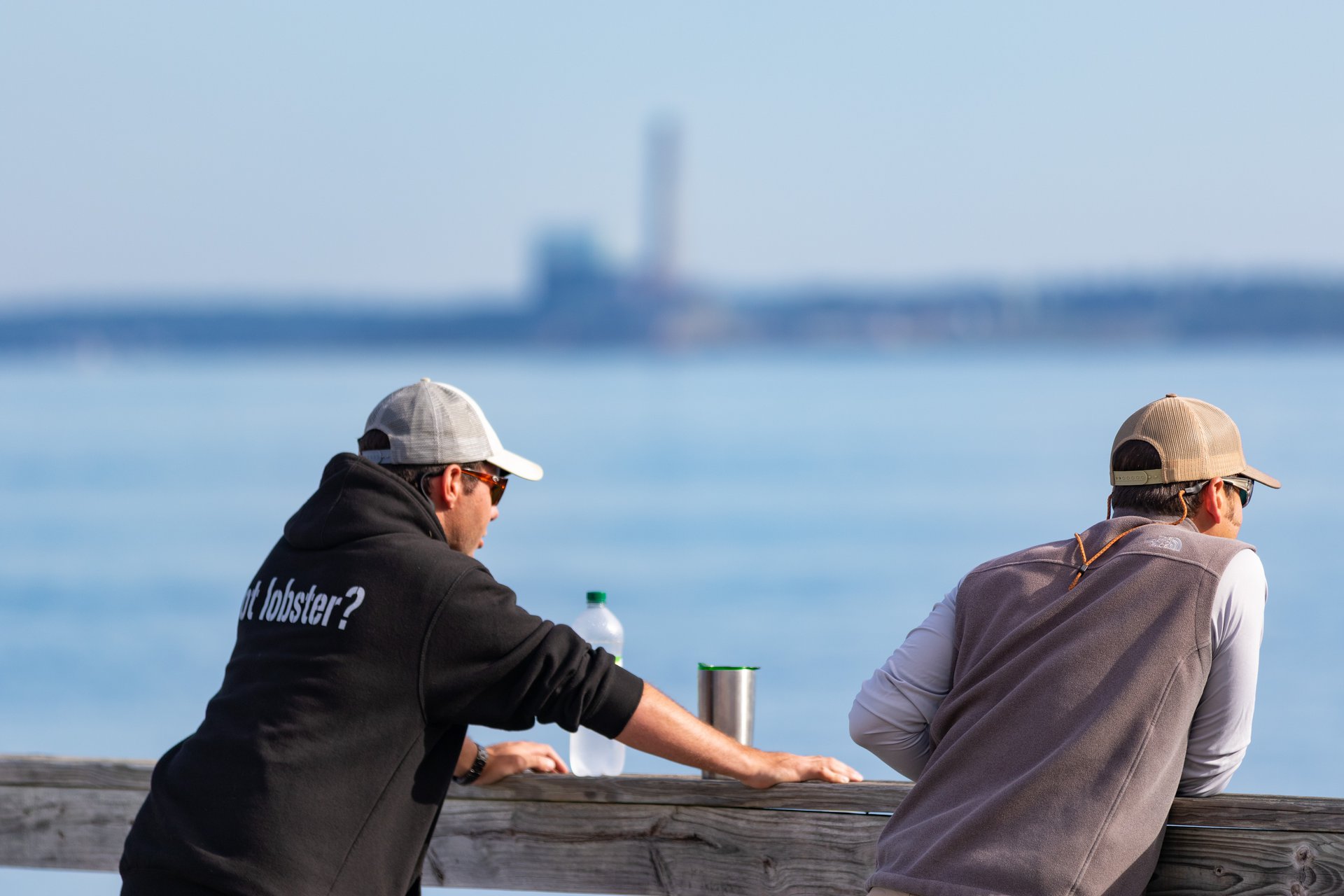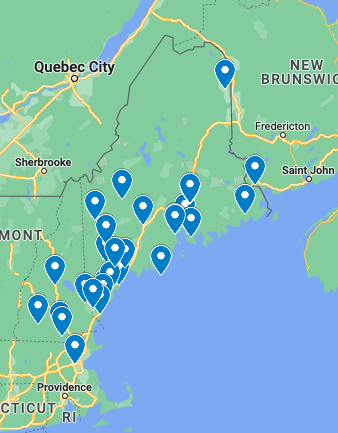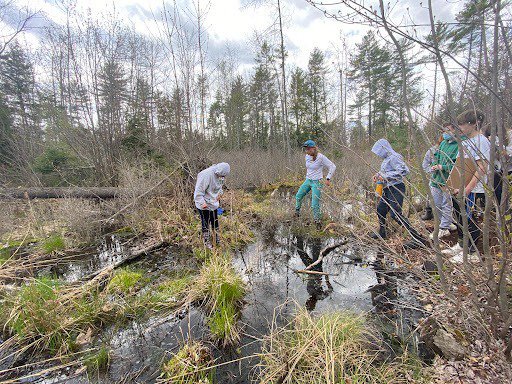The Value of Community Science
Perspectives | Jun 15, 2022
We learn from experts about community science — scientific research and monitoring driven and controlled by local communities — and what makes it such an effective tool for city planners, researchers, students, and everyone in between.

What is community science?
Global, climate-related challenges are becoming more visible every day. No matter who or where you are, you've likely experienced climate impacts such as more intense or frequent storms, floods, droughts, invasive species, sea level rise, supply shortages, and more. Solving these problems can seem like an impossible undertaking by yourself, but by working together we can make real differences, and even inspire future generations to contribute to meaningful change.
Community science — scientific research and monitoring driven and controlled by local communities — is one tool that helps us investigate complex questions in different ecosystems with our partners, stakeholders, and you at home.
Community science is a method of research that empowers anyone, regardless of background, to collect and contribute data to research efforts. It's powerful both as a data collection method and as a way to engage people with the issues and places most important to them.
We spoke to two of our staff involved in community science efforts to learn more about what goes into developing useful community science projects, and what makes community science valuable. We also spoke with GIS mapping and flooding expert Kevin Deneault from the City of Portland’s Department of Public Works to learn about the value community science brings to the city when it comes to planning and preparing for sea level rise and coastal flooding. Dr. Marissa McMahan, the Director of Fisheries at Manomet, who is leading a community science project on green crabs also told us how community science supports STEM education and her ongoing research efforts.
Community Science and Municipal Climate Action
Sea level rise and coastal flooding issues in Maine are becoming more noticeable each year as climate change continues to raise sea levels and generate more frequent, more intense storms. In order to prepare and plan for what’s ahead, municipalities need information. Which areas along the coast are most vulnerable? How quickly does the water seem to be rising compared to predictions? How do storms impact our coastlines? One of the best ways to gather information like this is to physically travel to the coastlines during high tide events and storms — but that’s a lot of coastline to cover.
“We have over 5,000 miles of really diverse tidal coastline, and only three NOAA tide gauges,” said Gayle Bowness, Municipal Climate Action Program Manager at the Climate Center here at GMRI. “Most of the coast is unmonitored, but in order for communities to make local and informed decisions, they need local data about current tidal impacts.”
That’s where enlisting the help of community members throughout the state becomes incredibly valuable.
Gayle is spearheading a Coastal Flooding Community Science project that provides a pathway for community members to contribute sea level and storm data directly to city planners. Kevin Deneault underscored the value that community-driven efforts like this can provide as they implement the city's One Climate Future plan.
“Getting the community engaged within the city of Portland is huge. We are providing a public service to them and in order to provide that public service, we need input. We need data. This is a great way to resolve that problem,” he said. “The community science project will help us understand our shoreline, our coastline, and how it's changing across the coast here in Maine."
Projects like this also go beyond simple data collection; they also connect people to the places around them, and in particular, to the intersection of land and sea.
“There is a natural draw to water and the coast. To see these important components of our lives and cultures change and interact differently over time draws a lot of interest. This project provides an outlet for people to experience this awe-inspiring interaction between land and water.”
Gayle Bowness Municipal Climate Action Program Manager

Projects like these are important because they also provide a pathway for people to contribute meaningfully to big challenges such as climate change, which can feel overwhelming to do on our own. It can be tough for individuals to think they can make a difference when it comes to problems as complex and omnipresent as climate change, but providing the public with actionable steps they can take that can lead to real changes is one way to make that easier.
“This project was an awesome idea and certainly an important initiative for the city to combat climate change — in particular around sea rise and coastal flooding,” said Deneault. “Thanks to GMRI for bringing this project together, specifically Gayle and her team for developing this community science tool.”
Community Science and STEM Education
Community science is an effective tool because anyone can get involved, including students. However, schools haven't always prioritized getting students outside to investigate real scientific questions.
“I taught middle school education as a seventh-grade science teacher for five years before coming to GMRI,” said Science Curriculum Specialist Meggie Harvey. “I constantly struggled to match what I was doing in the classroom with real science, with actual problem solving, and real, meaningful questions.”
Meggie sees community science as one answer to getting students involved in authentic scientific investigations that connect them to the communities around them, as well as with a network of professional scientists that can inspire scientific thinking and passion.
“Typical scientific experiences in our schools tend to be situated in a sort of ‘beginning, middle, and end’ framework. Here’s the question, here’s the answer, let’s move on. But that’s not what the actual scientific process looks like. Community science should take students through this process where they don't get to an endpoint and say ‘Okay I know everything, and I'm done.’ They get to an endpoint and become curious and say, ‘I want to know more, I want to do more.’”
Meggie Harvey Program Manager, Community Science in Education
Authentic science is iterative. We gather information, and sometimes that generates more questions than answers. Science doesn’t have an ending point, so we shouldn’t teach science like it does.
Another aspect of effective community science comes from its local nature. When students contribute to local scientific investigations, they make a real difference in the places where they live and go to school.
Scientists can also depend on data generated from community science efforts. Scientists like Manomet’s Dr. Marissa McMahan rely on the efforts of local students for research she is conducting on green crabs along Maine’s coast. She can’t be everywhere at once, so the students add much-needed capacity to her research efforts by fanning out to count and track the invasive species up and down the coast.
But the value that community science efforts generate goes far beyond pure data collection; it also brings students closer to the world around them and teaches scientific thinking.
"“For students, it’s an introduction to how science works. You’re not just connecting more deeply with your own ecosystem in your own community, but you’re understanding how the scientific method works, how we measure things, how we observe things and try to look at patterns and understand those patterns.”
Marissa McMahan, Ph.D. Director of Fisheries, Manomet

Another benefit for students is the opportunity to engage with other student scientists, as well as professional researchers. This provides an opportunity for students to ask questions and brainstorm with experts as they work through complex, real-world problems.
“I think that the back and forth with students and scientists, and that engagement is just as important,” Marissa said. “One of the things that I think is really great about the way that the GMRI program in particular is being run is it provides those opportunities for us researchers to actually connect with the students and have that back and forth.”
Another example of community science supporting STEM education comes from the recently concluded Vernal Pool Investigation, which engaged over 1000 students across Maine, Massachusetts, and New Hampshire.

Vernal pools are critical components of healthy forest ecosystems. Caddisflies, fairy shrimp, amphibian egg masses, and other important pieces of the food web need these temporary pools of water to survive. But these pools, which form only briefly in the spring from snowmelt and rain before drying out in the summer, can be difficult to track down.

Finding these important pools is a critical first step toward protecting them, but climate-related changes in snow and rainfall patterns and temperature are making an already challenging record-keeping task even harder. That’s where the help of thousands of students can come in, as Dr. Hamish Grieg, Associate Professor of Stream Ecology at the University of Maine and Vernal Pool project lead, can attest.
""We could spend years and not get anywhere near as much information as students can get by going out into the forests surrounding their schools and looking in vernal pools."
Hamish Greig, Ph.D. Associate Professor, University of Maine
Community science efforts are an important and impactful way to understand the rapidly changing ecosystems that surround us. Whether you are a researcher, a teacher, a student, or just an interested community member, participating in a community science project is a great way to get involved and make a difference.



